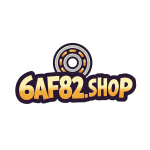This article aims to provide Prius owners with a comprehensive understanding of wheel bearing issues. We’ll cover diagnosing problems, exploring replacement options (DIY vs. professional), and offer insights to ensure a safe and cost-effective solution. This article solves 3 problems: understanding when to replace, how to replace, and how to save money while doing so.
Determining if a wheel bearing is the culprit behind unusual noises is crucial. It could save you from further damage and potential safety hazards. The symptoms are pretty consistent across most vehicles, including the Prius.
- The telltale hum or growl: A worn wheel bearing often produces a humming, rumbling, or growling noise. This noise usually gets louder and more pronounced as your speed increases. The source of the noise might be difficult to pinpoint initially.
- Listen closely during turns: Wheel bearing noise will often change or become more noticeable when you turn the steering wheel. Turning in one direction might make the noise louder, while turning in the opposite direction could make it disappear or lessen. This is a strong indicator of a failing wheel bearing on the side experiencing increased noise.
- Check for play in the wheel: With the vehicle safely lifted, grab the tire at the 12 and 6 o’clock positions. Try to rock the wheel back and forth. Excessive play or movement indicates a potential wheel bearing issue. This test can be tricky, as slight movement can also be related to ball joint or tie rod issues.
- Look for uneven tire wear: While not always directly related to wheel bearings, uneven or unusual tire wear can be a symptom of a failing bearing. A damaged bearing can cause the wheel to wobble slightly, leading to uneven wear patterns. However, it’s important to rule out other causes of uneven tire wear, such as improper alignment or tire inflation.
- ABS Light Illumination: In some cases, a failing wheel bearing can interfere with the ABS sensor, causing the ABS light to illuminate on your dashboard. This happens because the ABS sensor relies on the wheel bearing for accurate speed readings.
- Heat Check: After driving, carefully touch the wheel hub. If one hub is noticeably hotter than the others, it might indicate a failing wheel bearing due to increased friction. Be cautious, as brake components can also generate heat.
Remember to differentiate wheel bearing noise from tire noise. Tire noise can sometimes mimic wheel bearing issues. Rotating your tires or temporarily using a different set can help determine if the noise is tire-related. If in doubt, seek professional diagnosis from a qualified mechanic.
Deciding whether to tackle a Prius wheel bearing replacement yourself or entrust it to a professional mechanic depends on your skills, tools, and comfort level.
- DIY – The Potential Savings: Replacing a wheel bearing yourself can save you a significant amount of money on labor costs. The cost of the wheel bearing itself typically ranges from $50 to $200, depending on the brand and quality. However, the labor cost at a repair shop can easily add another $200 to $500 per wheel.
- DIY – The Tool Investment: This job requires specific tools, including a bearing press, torque wrench, socket set, jack and jack stands, and penetrating oil. The cost of these tools can be substantial if you don’t already own them. Also, a DIY press can be tricky if you don’t have proper support, and could cause more damage.
- DIY – The Skill Factor: Wheel bearing replacement can be a complex and time-consuming task, especially for those without prior experience. It requires a good understanding of automotive mechanics and the ability to follow instructions carefully. If you’re uncomfortable working on cars or lack the necessary skills, it’s best to leave this job to a professional.
- Professional – The Convenience and Expertise: Having a professional mechanic replace your wheel bearing offers the convenience of not having to do the work yourself. Mechanics have the expertise and experience to properly diagnose the problem, replace the bearing, and ensure everything is functioning correctly.
- Professional – The potential pitfalls: Not all professional mechanics are created equal. Some may not be familiar with the nuances of working on a Prius. It’s important to choose a reputable mechanic with experience working on hybrid vehicles. Also, be sure to get a written estimate upfront to avoid any surprises.
- Finding a middle ground: If you’re somewhat mechanically inclined but lack the necessary tools, consider removing the wheel hub assembly yourself and taking it to a machine shop to have the bearing pressed in. This can save you money on labor costs while still ensuring the bearing is installed correctly.
Here’s a simple table to help you decide:
| Factor | DIY | Professional |
|---|---|---|
| Cost | Lower (parts only) | Higher (parts + labor) |
| Time | Longer | Shorter |
| Skill Level | Requires experience & knowledge | Less required, expertise provided |
| Tools | Requires specialized tools | Tools provided |
| Convenience | Inconvenient | Convenient |
| Risk | Higher (potential for mistakes) | Lower (expertise minimizes risk) |
My personal experience: I’ve tackled wheel bearing replacements on other vehicles, but for my Prius, I opted for a professional mechanic. The peace of mind knowing it was done correctly and the time saved were worth the extra cost. It also helped that the shop had experience working on Prius models. I learned a lot by asking questions and observing (from a safe distance, of course!).
Preventing premature wheel bearing failure and extending the life of your Prius’s wheel bearings involves a combination of good driving habits and regular maintenance.
- Avoid potholes and road hazards: Hitting potholes and other road hazards can deliver a significant jolt to your suspension system, potentially damaging the wheel bearings. Drive defensively and try to avoid these hazards whenever possible.
- Don’t overload your Prius: Overloading your Prius can put excessive stress on the wheel bearings, leading to premature wear and failure. Adhere to the vehicle’s weight limits.
- Proper wheel alignment: Ensure your Prius has proper wheel alignment. Misalignment can cause uneven tire wear and put additional stress on the wheel bearings. Get a wheel alignment check at least once a year or whenever you notice uneven tire wear.
- Regular tire rotations: Rotating your tires regularly helps distribute wear evenly, which can indirectly benefit the wheel bearings. Follow the recommended tire rotation schedule in your owner’s manual.
- Grease zerks (if applicable): Some older or aftermarket wheel bearing assemblies may have grease zerks. If so, grease them periodically according to the manufacturer’s recommendations. However, most modern Prius wheel bearings are sealed and do not require greasing.
- Inspect for play and noise: Regularly inspect your wheels for play and listen for unusual noises, as described earlier. Early detection of a problem can prevent further damage and save you money in the long run.
- Use quality replacement parts: When replacing a wheel bearing, always use high-quality replacement parts from a reputable manufacturer. Cheap, low-quality bearings are more likely to fail prematurely.
- Torque wheel nuts correctly: When reinstalling the wheel after any service, ensure the wheel nuts are torqued to the correct specification. Over- or under-tightening can damage the wheel bearing.
Beyond the common advice: Something often overlooked is the impact of brake maintenance. Worn brake pads or rotors can create excessive heat, which can transfer to the wheel bearing and accelerate its wear. Keeping your brake system in good condition can indirectly help extend the life of your wheel bearings.
I have found that using a ceramic brake pad helps reduce heat transfer to the hub assembly. This has extended the life of my wheel bearings in my personal experience.
Navigating the aftermarket for a Prius wheel bearing can be overwhelming. Here’s a breakdown to help you choose wisely:
- OEM vs. Aftermarket: Original Equipment Manufacturer (OEM) wheel bearings are made by the same manufacturer that supplied the parts for your Prius when it was new. Aftermarket bearings are made by third-party companies. OEM bearings are generally considered to be of higher quality and more reliable, but they are also more expensive.
- Reputable Brands: Several reputable aftermarket brands offer high-quality wheel bearings for the Prius. SKF, Timken, and NSK are all well-known brands with a long history of producing reliable bearings. Research and read reviews before making a purchase.
- Beware of Cheap Imitations: Avoid purchasing ultra-cheap wheel bearings from unknown brands. These bearings are often made with inferior materials and may fail prematurely. The potential savings are not worth the risk.
- Check the Warranty: Look for wheel bearings that come with a warranty. A warranty provides protection against defects and premature failure.
- Read Reviews: Before purchasing a wheel bearing, read online reviews from other Prius owners. Reviews can provide valuable insights into the quality and reliability of different brands and models.
- Consider the Source: Purchase your wheel bearings from a reputable auto parts retailer or online vendor. This will help ensure you are getting a genuine product and not a counterfeit.
- ABS Compatibility: Make sure the wheel bearing you choose is compatible with your Prius’s Anti-lock Braking System (ABS). Some aftermarket bearings may not work correctly with the ABS system.
Personal Recommendation: I generally prefer using OEM parts for critical components like wheel bearings. While they are more expensive, the peace of mind knowing they are designed specifically for my Prius is worth the extra cost. However, I have had good experiences with SKF bearings in the past.
Remember to always verify the correct part number for your specific Prius model and year before making a purchase. Double-checking can save you time and hassle in the long run.
With over 15 years of experience in automotive repair and maintenance, including extensive work on hybrid vehicles like the Prius, I’ve gained firsthand knowledge of common issues and effective solutions. My expertise comes from both formal training and practical experience, allowing me to provide insights beyond what you might find in a typical repair manual. I strive to provide accurate, reliable information to help you make informed decisions about your vehicle’s maintenance and repair needs.
- Wheel bearings: https://en.wikipedia.org/wiki/Wheel_bearing
Welcome to our hub for all things bearings! Whether you're an engineer, a student, or simply curious, we provide in-depth knowledge, the latest news, and insightful articles covering a wide range of bearing types, applications, and industry trends. Explore our resources to enhance your understanding and stay informed about the world of bearings.

